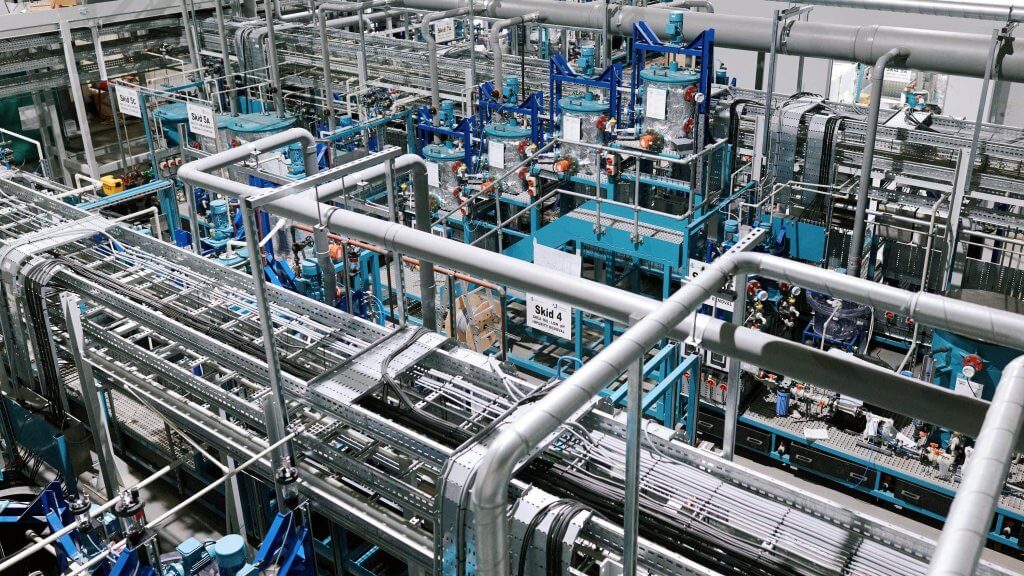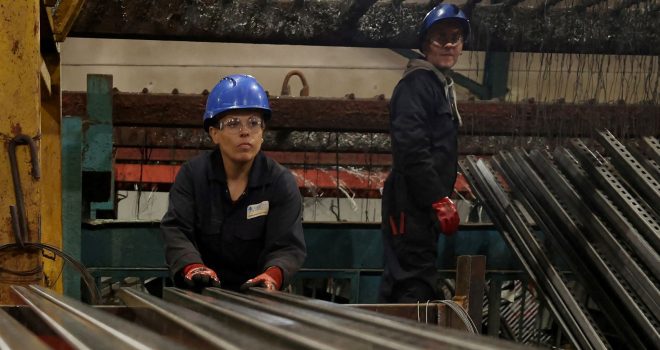‘Landmark’ For UK Lithium Production As Demo Plant Opens In Cornwall

A demonstration facility for producing lithium is opening in Cornwall in what backers say is a milestone in helping the UK’s transition to clean power.
Cornish Lithium’s demonstration plant near St Austell is set to start producing lithium hydroxide, key for making batteries for electric vehicles and other technology, from granite extracted from an old China clay pit.
It is part of Cornish Lithium’s Trelavour Hard Rock project which aims to produce 10,000 tonnes of sustainable domestic lithium a year by 2027, to reduce reliance on importing carbon-intensive materials from places such as China.
The company says the demonstration plant will confirm, at a semi-industrial scale, the viability of extracting lithium from rock in Cornwall, and hopes the first samples of lithium from the project will be ready to send out to car manufacturers in November.
Cornish Lithium chief executive Jeremy Wrathall said: “Lithium is critically important to the manufacturing of electric vehicles, grid scale electricity storage and rechargeable industrial and consumer electronics.”
He said, by 2030, it was expected that the UK will need about 110,000 tonnes of lithium carbonate equivalent, but the country currently imports 100% of the lithium it uses.
However, he said: “We’re home to the largest lithium resource in Europe with enough beneath our feet in Cornwall to supply over half of what the electric vehicle industry needs.
“This is a huge untapped advantage that is currently being wasted, when it could be making our industries more competitive and resilient to global supply chain volatility.”
He said extracting lithium would be “sensible” given the geology of Cornwall was right for it, delivering economic and strategic security.
And he said it will cut emissions from shipping from abroad and from processing, with the plant next to the quarry extracting lithium from minerals using acid, rather than roasting with fossil fuels which is used for most Chinese hard rock extraction.

The demonstration plant has been funded as part of an investment package from what is now the National Wealth Fund, alongside The Energy & Minerals Group and TechMet, along with funding from the UK Government’s automotive transformation fund.
“The opening of the demonstration plant is a landmark moment for Cornish Lithium as this means we can now confirm at a semi-industrial scale the viability of extracting lithium from the mica mineralisation found in Cornwall,” Mr Wrathall said.
The plan is to scale up to a £230 million full production facility on the site, with funding from the investment package and other sources.
The Trelavour Hard Rock Project has been designated as a Nationally Significant Infrastructure Project by the UK Government, and the company estimates it will contribute £800 million and create more than 300 local jobs from 2027 over the life of the project.
Cornish Lithium also has projects to extract lithium from geothermal waters deep underground in the region, which could be producing 25,000 tonnes a year of lithium carbonate equivalent – meeting 25% of the UK’s demand for the material, according to the company.
Mr Wrathall added the project would have a positive benefit for an area with a mining heritage that stretched back 4,000 years for tin and copper and 275 years for China clay, and which suffered from social deprivation.
“Cornish people are very proud of their mining heritage,” he said.
“We haven’t had any real opposition to this project, they’re proud and they want to see it happening.
“Of course, they’ve got questions, but the overall impression is we want it, we understand it, we’ve lived with it for a long time, it’s in our DNA to Cornish people,” he said.
Business and Trade Secretary Jonathan Reynolds said: “This is great news for Cornish Lithium, and will not only support high-skilled jobs in the South West but give a major boost to our critical minerals supply chains for the long term.
“Lithium will be vital to our automotive sector’s EV transition and driving the green industries of the future, which is why we’ve made clean energy a priority sector in our ambitious, modern Industrial Strategy.”
Other companies are also working to extract UK lithium reserves, in Cornwall and in the North East.




